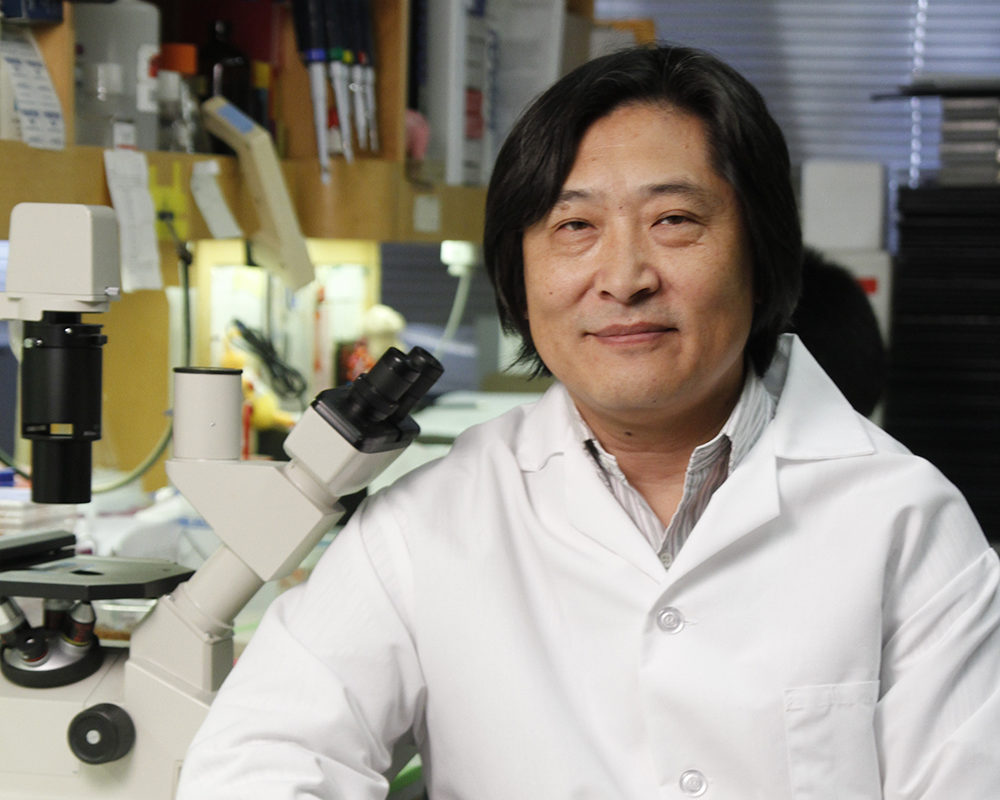
Over the last decade, osteonecrosis of the jaw (ONJ) has emerged as a devastating and debilitating condition of cancer patients receiving high doses of antiresorptive chemotherapy (bisphosphonates and denosumab). ONJ currently has no cure.
A study led by Songtao Shi of Center for Craniofacial Molecular Biology at the Ostrow School of Dentistry of USC in collaboration with Anh Le, formally of the Ostrow School and now at the University of Pennsylvania School of Dentistry, has found a potential treatment for this devastating condition.
By examining samples from cancer patients inflicted with this disease, patients with peridontitis as well as animal models of BRONJ (bisphosphate related osteonecrosis of the jaw), the group showed that increased level of cytokine IL-17, a small protein produced by the body to modulate immunological response and increased M1/M2 Macrophage ratio are prominent features at the lesion site. Using the small molecule that block IL-17 and antibody against IL-17, the group is able to alleviate the symptom in the mouse model.
The study is published in April issue of Clinical Cancer Research. The group previously published two studies using allogeneic mesenchymal stem cell therapy to treat BRONJ in mouse and swine models of the disease and showed that these cells also help reduce the IL-17 level in the mouse and pig model.
